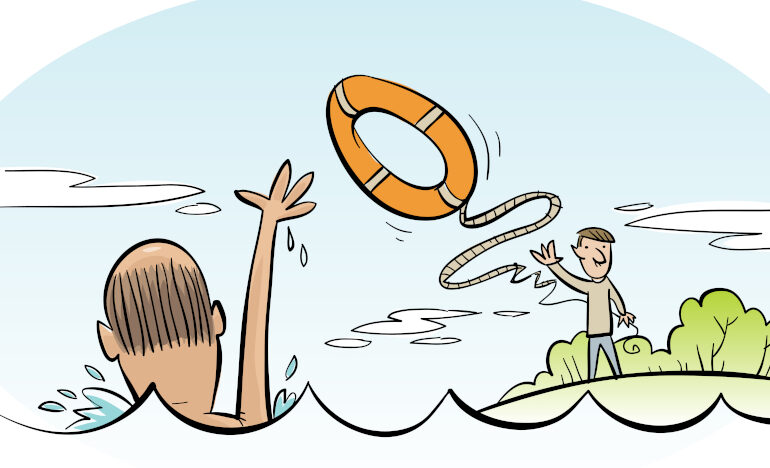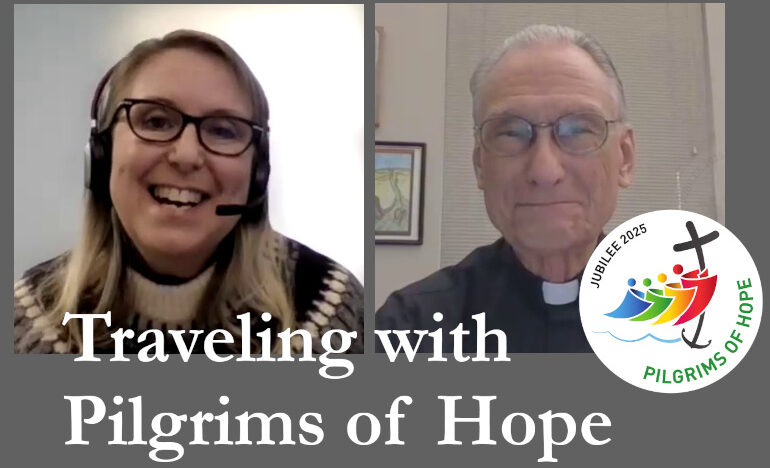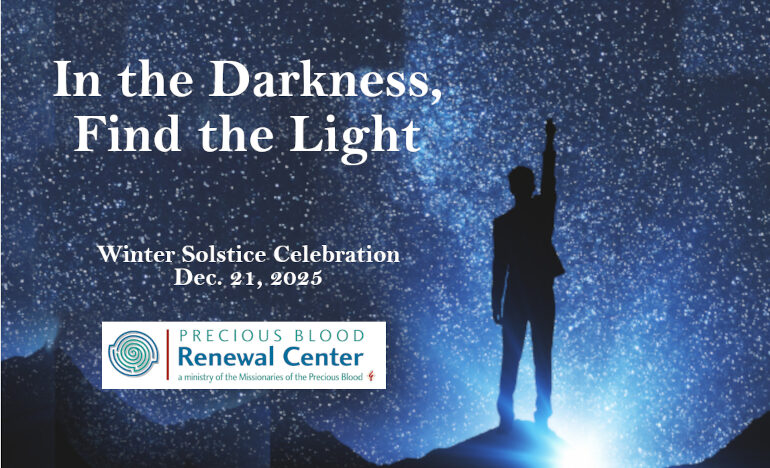Help! Save me!

An Assembling God’s Puzzle video
By Fr. Garry Richmeier, C.PP.S.
Almost all of us human beings have in us a natural impulse to help others. It is an aspect of being made in the image and likeness of God. We really don’t like to see people suffer because we have this built-in instinct for compassion, if you will. And of course, it is usually the strongest when it comes to helping the people closest to us. Parents will sacrifice a lot to help their children, for example.
Even though this desire to help is instinctual, it doesn’t mean we automatically do things that are actually helpful to others. To be helpful, it takes more than simply acting on instinct or impulse. Our desire to help others is a piece of the puzzle of who we are, and sometimes it is a challenge to fit it into our lives in a way that bears fruit.
Sometimes it is pretty obvious when someone needs help, and what they need. For example, if I see someone drowning, it is obvious that they need something to keep them from going under. I can jump in to save them if I’m able, or throw them a flotation device, or call for help, etc.
But often it is not that obvious what might be helpful to a person in a particular situation. That is when it becomes more of a challenge to figure out what to do to help. And that is when we are liable to do something to help that isn’t that helpful.
Something that some people do in the name of helping others is to do nothing and leave the person in trouble to figure it out on their own. With this type of view you will hear things like “I learned how to do it without anyone’s help, so should others,” or “People need to pull themselves up by the bootstraps instead of whining for help,” or “They’ll never learn if they get bailed out all the time.”
Of course there is some truth to these sayings. But this approach is only helpful in situations where a person in trouble is actually able to do something that will solve their problem. You would not take this approach with someone who is drowning, for example, and has no ability to deal with the problem.
This philosophy of helping others is built on the premise that, 1) We know everything about the life situation of the person in trouble, and 2) We know everything about their abilities (psychological, physical, emotional, etc.) to solve their problem. That is, unfortunately, an assumption that is often made while people are “drowning” in some way, and it is not helpful to them. Adopting this attitude of “helping” is also often a thinly-veiled excuse for inaction and selfishness.
Some of us go to the opposite extreme as we try to help others, which is similarly unhelpful. With this approach, a person tries to help by trying to solve the problem for the person in trouble. The helper sees the person in trouble as being helpless and in need of the helper to take charge and make everything better. People with this view will often say things like “Oh you poor dear! Let me do it,” or “I can’t stand to see you struggle, so I’ll take over,” or “You’re just too weak (or disadvantaged or incapable or handicapped, etc.). I’ll help.”
This approach is helpful only when it is certain that the person in trouble really does not have any wherewithal to manage the problem, like the drowning person. But as mentioned before, the “too much” helper often assumes they know exactly what the other person is dealing with and what they are capable of doing, and ends up doing something that is not helpful. This often leads to a situation of codependency and a subtle devaluing of another’s right to run their own life. Often, it also serves to bolster a conscious or unconscious sense of egotistical superiority on the part of the helper.
If we want to be truly helpful to each other, we need to make it a team effort. There is no way a person can know everything about another’s life situation and abilities, and therefore know exactly what would be helpful to that person. Instead of automatically assuming what the person in trouble needs (like money, tough love, information, independence, punishment, a listening ear, etc.), it is better to let the person explain what exactly their situation is and what would be helpful.
In this type of dialogue, the helper and the person in need of help can together look at all the options available and get a better idea of what would actually be helpful. The old saying still holds here, “Two heads are better than one.” This dynamic also promotes an equal relationship between people, instead of promoting a relationship where one person is superior (the helper) and the other is inferior (the person being helped). This actually blurs the line between helper and “helpee,” because the two become one force in solving the problem.
We live in a “git ‘er done” society, and we want to solve problems quickly and easily. We are also very opinionated, and we avoid admitting that we don’t know it all, like we’d avoid the plague. So that is why putting in the time and effort to discern what would be truly helpful to others, as described above, often doesn’t happen. That is also why some of our most persistent societal problems never get solved, because people in power (helpers) hand down their “solutions” to the problems without the input of the people needing help.
No one is completely powerless, lacking any ability to deal with their problems. And no one is completely powerful, having all the answers and the wherewithal to solve problems. It is only in working together that we can effectively help each other with the challenges in life.
All of the videos in this series can be found here: Assembly God’s Puzzle.
Never miss an article published on the Renewal Center website: Sign up to receive our newsletters.
[Fr. Garry Richmeier, a Precious Blood priest and spiritual director, holds a Master’s of Divinity Degree from St John’s University in Collegeville, Minnesota, and a Master’s of Counseling Psychology degree from the University of Missouri-Kansas City. He is a licensed professional counselor and a licensed marriage and family therapist.]
Photo ID 26762283 © Brett Lamb | Dreamstime.com
Related

Pilgrims of Hope, Episode 11 Walking with Young People
In this episode of the Jubilee Year video series, “Traveling with Pilgrims of Hope,” we talk with Teri Iverson, the Vocation Ministry Coordinator for the Sisters of the Precious Blood in Dayton, Ohio, about the joy and hope she finds in working among young people.

Video: Winter Solstice Celebration 2025
The Winter Solstice is the longest night of the year and the earth lies fallow. We are drawn naturally into contemplation. At the Renewal Center, we mark the Winter Solstice with a time of slow, quiet reflection and fellowship.
Categories
Assembling God's Puzzle Coffee with Padre Cooking & Spirituality Encounters of the 4th Kind Family Matters Guided Meditations Reflections on the Eucharsitic Prayers Spiritual Resources Taize Prayers Teach Us to Pray The Contemplative Life Traveling with Pilgrims of Hope Uncategorized Videos When you need a little help
